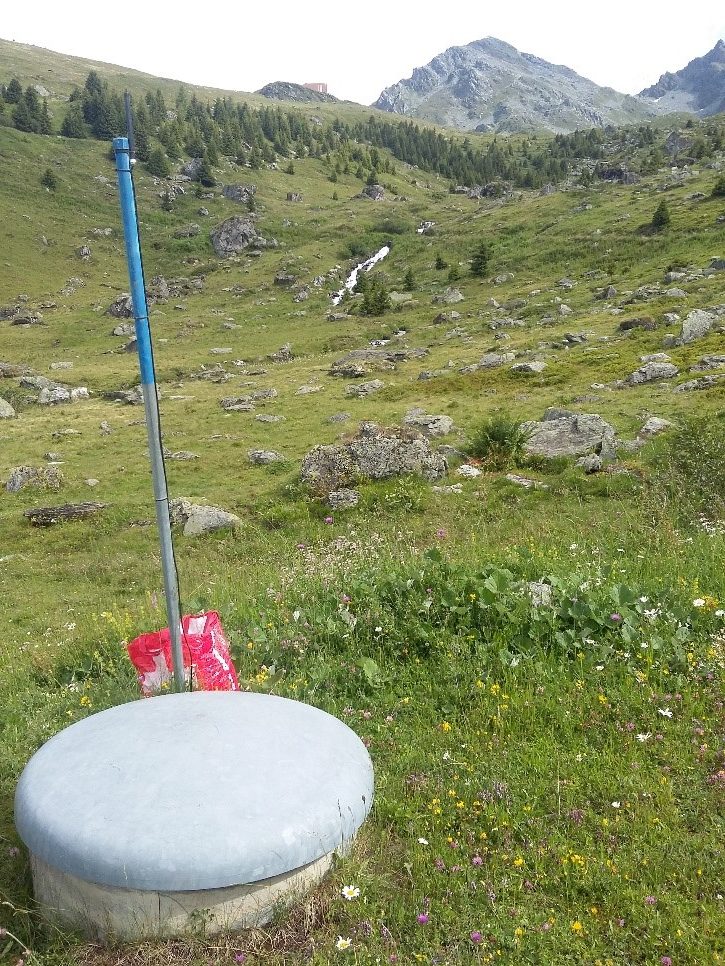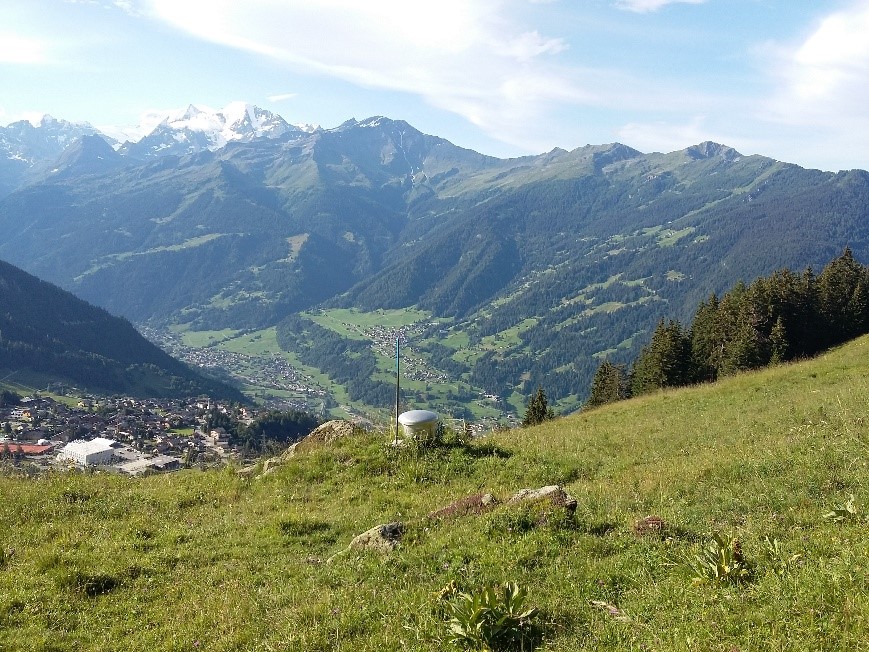Sources 2100 > strategic groundwater management
Strategic groundwater resources in the face of climate change
This project, led by CREALP with ALTIS and the French Water Research Fund (FOWA), aims to develop tools for the strategic management of groundwater resources to ensure the current and future safety of drinking water supplies, in terms of both quantity and quality.
Some communities in the Alps rely almost exclusively on groundwater for their drinking water supply, thanks to the presence of numerous springs tapped on mountain slopes. With climate change, groundwater recharge in Alpine environments is expected to increase in winter, but decrease in spring and summer, probably leading to a reduction in the amount of water stored. Low-water periods will shift from winter to summer, leading to more frequent summer droughts. The response of springs to these changes depends on a number of factors, not least the reactivity of the aquifers on which they depend. These temporary crisis situations could lead to conflicts over water use.

In order to anticipate and best adapt to these situations, it is now necessary to carry out a strategic diagnosis of available groundwater resources. The aim of this diagnosis is to identify sustainable resources and those that are vulnerable or likely to become so in the short, medium or long term.
To achieve this, the study is divided into two complementary areas, based on a pilot study zone, the Val de Bagnes:
- A qualitative approach involving the analysis of rare metals in springs to identify the types of aquifers containing water resources whose potability could be problematic, both spatially and temporally.
- A quantitative approach, which consists of analyzing quantitative data from available sources to 1) identify their inertia in the face of drought episodes and 2) estimate changes in terms of flow with climate change.
This study should provide a methodology that can be applied to other municipalities, enabling them to use specific in-situ measurements to identify strategic groundwater resources in the face of climate change.
Information
Project leader: Dr Marie Arnoux
Project duration: 2021 – 2022
Project sponsors: Altis and SSIGE
Further information
Arnoux, M., Brunner, P., Schaefli, B., Mott, R., Cochand, F., & Hunkeler, D. (2021). Low-flow behavior of alpine catchments with varying quaternary cover under current and future climatic conditions. Journal of Hydrology, 592, 125591.
Arnoux, M., Halloran, L. J. S., Berdat, E., & Hunkeler, D. (2020). Characterizing seasonal groundwater storage in alpine catchments using time-lapse gravimetry, water stable isotopes and water balance methods. Hydrological Processes, 34(22), 4319-4333.
Cochand, M., Christe, P., Ornstein, P., & Hunkeler, D. (2019). Groundwater Storage in High Alpine Catchments and Its Contribution to Streamflow. Water Resources Research, 55(4), 2613-2630.
Glas, R., Lautz, L., McKenzie, J., Moucha, R., Chavez, D., Mark, B., & Lane, J. W. (2019). Hydrogeology of an alpine talus aquifer: Cordillera Blanca, Peru. Hydrogeology Journal, 27(6), 2137-2154.
HydroCH2018 2020. Effects of climate change on Swiss waters
NCCS, N. C. for C. S. (n. d.). Hydro-CH2018 Synthesis Report.
NCCS, N. C. for C. S. (n. d.). Hydro-CH2018 Research Projects.
Hayashi, M. (2020). Alpine Hydrogeology: The Critical Role of Groundwater in Sourcing the Headwaters of the World. Groundwater, 58(4), 498-510.
Vincent, A., Violette, S., & Aðalgeirsdóttir, G. (2019). Groundwater in catchments headed by temperate glaciers: A review. Earth-Science Reviews, 188, 59-76.
Viviroli, D., Dürr, H. H., Messerli, B., Meybeck, M., & Weingartner, R. (2007). Mountains of the world, water towers for humanity: Typology, mapping, and global significance. Water Resources Research, 43(7).


